Extreme temperatures – an update
We’ve coped well today in the heat, helped by moving classrooms, cool clothing and staying in at break times.
However, by mid-afternoon, it was uncomfortable around school.
The peak temperature of 38 degrees is predicted between 2.00pm and 4.00pm. Based on this, we’re suggesting a pick-up time of 1.30pm tomorrow, Tuesday 19 July, if you can.
This week’s bible story
Jesus is friends with Zacchaeus: Luke 19: 1-10
Have you ever heard the story of Burglar Bill – Bill goes out every night. Getting into houses through open windows and taking things. Until one night, Bill found a baby, and that changed his whole life …
There is a Bible story about a man who stole from other people. He took extra money when he gave them their tax bills and became very rich on all the money that he stole. Zacchaeus was a little man and that small people can’t see in crowds. Read the story of Zacchaeus to find out what happened to him.
Reflection:
Jesus loved everyone when he lived on the earth. It didn’t matter how bad people were, Jesus was always there for those who needed him. This is true for us too – no one is so bad that God doesn’t love them. And the more time we spend with God – praying, thinking about him, finding out about him, the more we want to be like Jesus; kind, helpful and good. Just like Zacchaeus, Burglar Bill changed his ways and tried to be more like Jesus by loving those around him. Even though Burglar Bill and Zacchaeus made the wrong choice, God forgave them and continued loving them.
Prayer:
Dear God,
Thank you that Jesus loved Zacchaeus even when he wasn’t making the right choices. Help us to love all of those around us and be honest about our actions.
Amen
D-side workshop
We really enjoyed being visited by Dave from D-side this week.
He taught us all about the harmful effects smoking and alcohol can have on our bodies.
We learnt about how attitudes have changed towards smoking over the years. The media has moved away from trying to persuade people to buy cigarettes, to now warning them about the dangers of this choice. We found out that smoking damages the lungs and breathing, making it difficult for people to play their favourite sports. We were amazed to find out that 4000 chemicals go into one small cigarette!
We then thought about how alcohol can affect the brain, causing parts of our body to lose their regular function. As messages to the brain become slower, this makes people much more at risk.
The children then thought about what we can do and say in situations where our peers put pressure on us to try substances we know are bad for our bodies. They came up with some fantastic and very sensible suggestions, w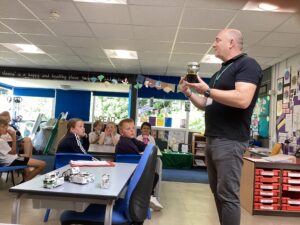 ell done Years 3 and 4!
ell done Years 3 and 4! 
Extreme temperatures forecast
We all know about the extreme temperatures forecast for the first part of next week. The Department for Education is not advising that schools close; instead they have issued guidance to schools.
Please note there is a possibility we may need to close early, or invite you to collect your child from 1.30pm. We’ll let you know if this is the case as soon as we can.
Apologies: we haven’t advised on this earlier as we’ve been waiting more guidance and continued monitoring of weather forecasts. (And a lot depends on the day: a strong breeze, like today, will help make the next couple of days bearable, if there is one.)
In case you missed Friday’s message, the guidance sets out sensible points to follow – make sure you consider each of the following:
- make sure your child comes to school with a large bottle (it could have water previously frozen)
- your child should wear a sun hat and loose, cool clothing (we’re relaxing the rules around school uniform – replace uniform items with things that are cooler eg open sandals rather than shoes, uniform shorts with lighter PE shorts – try to stay as smart as possible)
- your child should be wearing Factor 50 sunblock when they arrive at school and may apply more during the day
In school, we’ll take as many actions as we can. These will include indoor lunchtimes, avoiding vigorous activity, and avoiding being in large groups in one indoor space for a longer time.
In the holiday mood!
This week, we’ve been thinking about places we’ve visited on day trips and also places we’ve been to on holiday. We’ve discussed trips to the countryside and to the seaside and thought about what makes them different and why. We’ve talked about the beach and what we may find when we visit the seaside and compared it to walks in the countryside where we usually see lots of animals. In our home corner, we set up an ice cream parlour and took orders for different flavours and we also made some silly ice creams from foaming soap and paper straw sprinkles (not to be eaten, of course). We thought about postcards, what they look like and why people send them from their holidays. We also made our own passports and added a drawing of ourselves and our names so we can travel. At the end of the week, the children created a magic imaginary bus and they all had a go at being the driver. Our steering wheels from a couple of weeks ago came in very handy!
In phonics, we’ve continued to segment words containing 3 phonemes into individual sounds and have also orally blended sounds together to make short words. In maths we’ve been using positional language to describe where a variety of soft toys have been sitting in the classroom.
Next week, we’re all going to be pirates so we’ve started making our own telescopes in preparation to sail the high seas. Maybe we’ll see some magical creatures on our journey or, perhaps, find some treasure… Hoist the mainsail and off we go!
As the temperatures continue to rise and the beginning of next week looks like it will be extremely hot, please make sure you send your child to nursery with the following items: a water bottle, a sun hat, high factor sunscreen (to be applied before nursery) and loose clothing (please note that uniform is optional in nursery).
Many thanks.
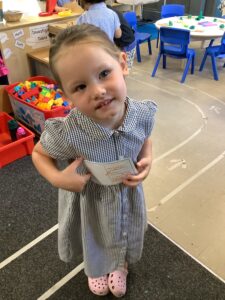
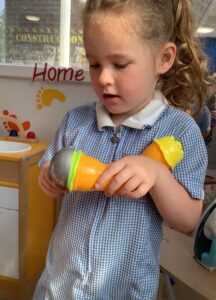
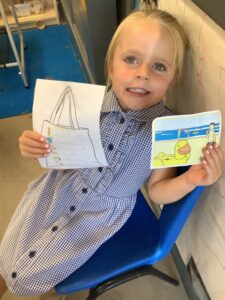
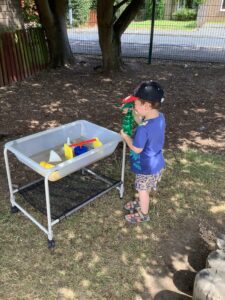
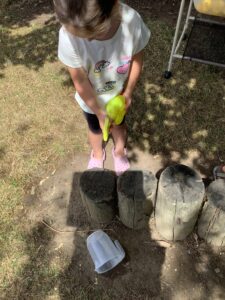
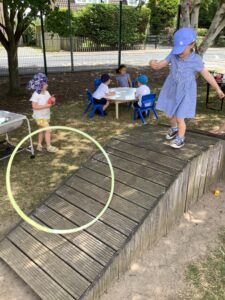
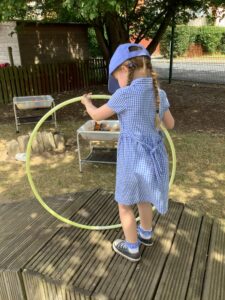
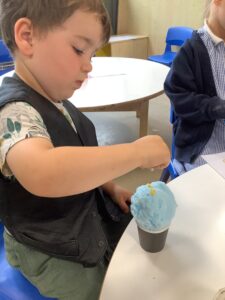
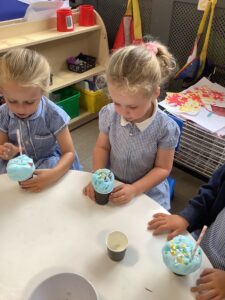
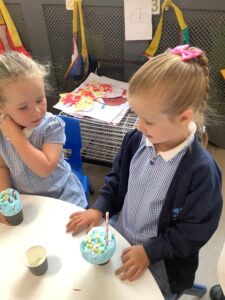
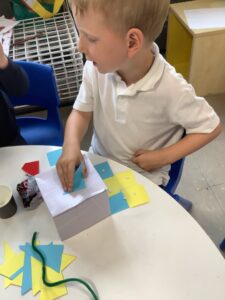
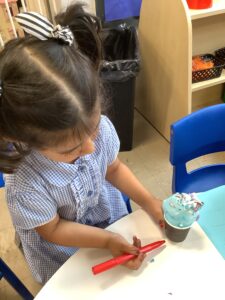
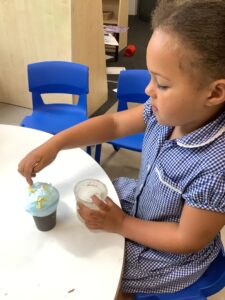
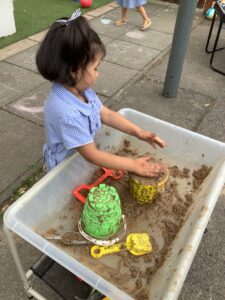
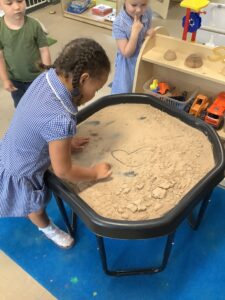
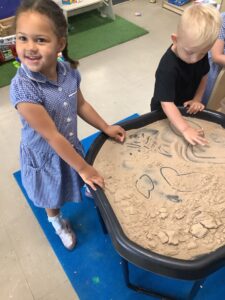
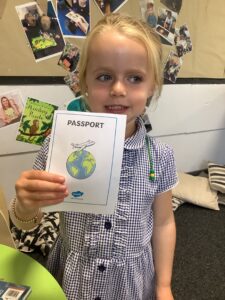
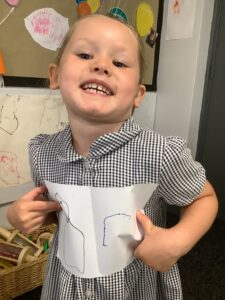
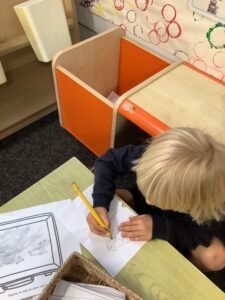
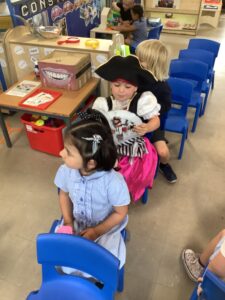
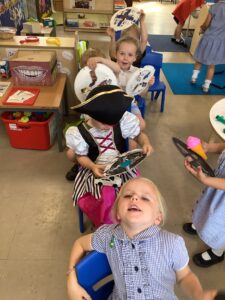
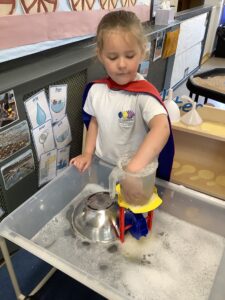
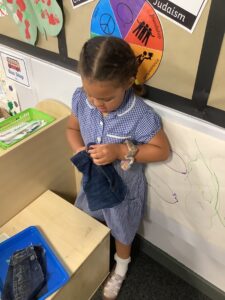

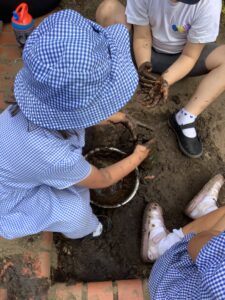
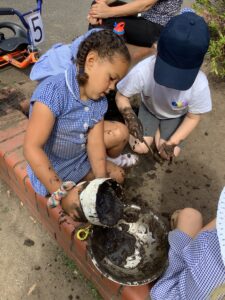
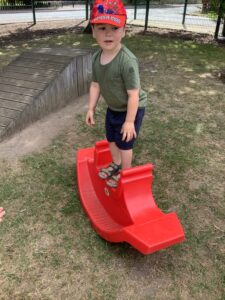
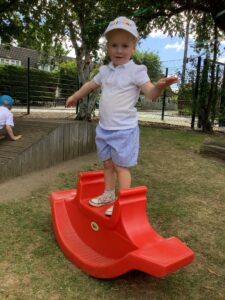
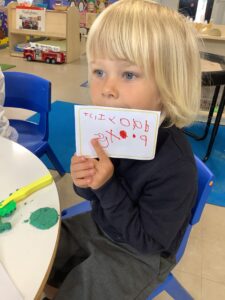
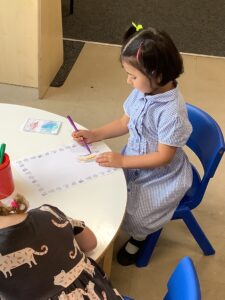
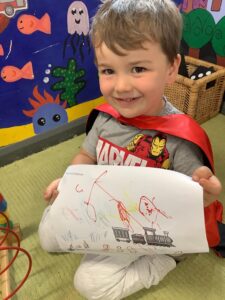
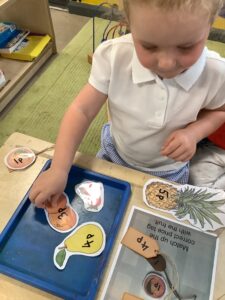
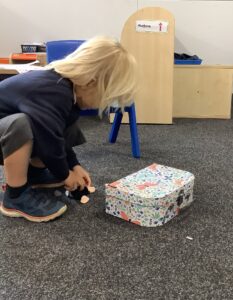
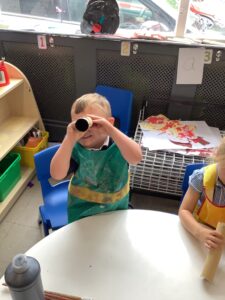
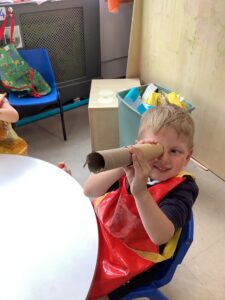
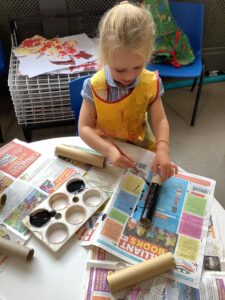
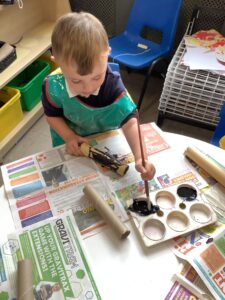
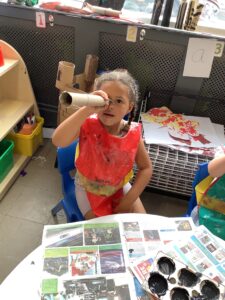
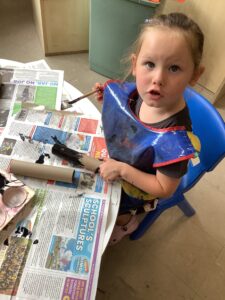
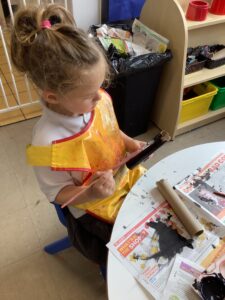
This week’s message (Friday 15 July 2022)
It’s our penultimate message of the year… This one’s mainly about the Summer Fayre and our recent SIAMS inspection. There are also two links to other things if you’re interested.
Before we start the message, a note about extreme temperatures forecast for the first part of next week. The Department for Education is not advising that schools close; instead they have issued guidance to schools. The guidance sets out sensible points to follow – make sure you consider each of the following:
- make sure your child comes to school with a large bottle (it could have water previously frozen)
- your child should wear a sun hat and loose, cool clothing (we’re relaxing the rules around school uniform – replace uniform items with things that are cooler eg open sandals rather than shoes, uniform shorts with lighter PE shorts – try to stay as smart as possible)
- your child should be wearing Factor 50 sunblock when they arrive at school and may apply more during the day
In school, we’ll take as many actions as we can. These will include indoor lunchtimes, avoiding vigorous activity, and avoiding being in large groups in one indoor space for a longer time – this might mean we have to postpone or cancel productions.
Summer Fayre – thank you!
Thanks to everyone who cam along to the Summer Fayre last week – and a big thank you to the PTA for organising such a wonderful event. The total profit was £1203.93 – a magnificent achievement! PTA say: ‘We are so thankful for all of the parents/carers support and we hope you enjoyed it’ – we certainly did!
The school’s vision of creating a ‘happy and healthy place to achieve and believe’ is passionately lived out by the entire school community.
We’re really proud of our recent SIAMS inspection!
SIAMS stands for the Statutory Inspection of Anglican and Methodist Schools – all church schools in England are regularly inspected, mainly to evaluate the extent to which church schools are ‘distinctively and recognisably Christian’. We were last inspected in 2022 and were judged to be good. Read the report.
Highlights include…
Leaders value and believe in each and every member of this community and the nurturing support they provide for individual parents, pupils and staff is transformational.
The vision lies at the heart of the school’s ambitious curriculum, which inspires pupils to believe that they can flourish and achieve.
The school’s vision of creating a ‘happy and healthy place to achieve and believe’ is passionately lived out by the entire school community.
Through his inspirational example of servant leadership, the head of federation is transforming this school, day by day, into a place where everyone is nurtured and supported to enable them to live ‘life in all its fullness’.
The head of school has worked tirelessly since her appointment to develop the school’s partnership with parents and carers. Exceptional care and support have been provided for individual parents when needed
Leaders and staff know each child and parent as an individual and they are therefore able to quickly recognise any barriers or challenges their families may be facing.
Governance
Governing bodies aren’t required to produce an annual report; however, Sphere Federation governors believe communicating with our school community is important. Check out their annual governance statement.
Summer Fun
Breeze is for all children and young people aged 0-19 from Leeds (and their families) who are looking for positive things to do. Although Breeze is run by Leeds City Council, the information they list comes from all sorts of organisations and partners working positively with children, young people and their families in Leeds, not just the council. Check out the 27 days of fun: Breeze in the Park.
Have a good weekend. Next week, look out for the return of our Summer competition!
Almost there!
This week has been a ‘chilled’ week compared to last week. We’ve enjoyed spending some quality time in the areas and making the most of our last days in Reception.
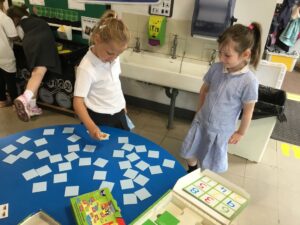
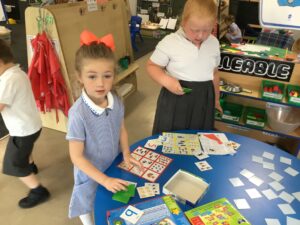
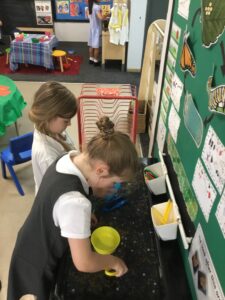
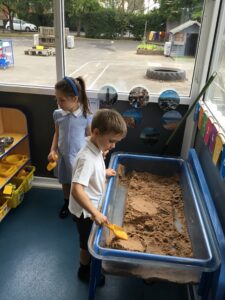
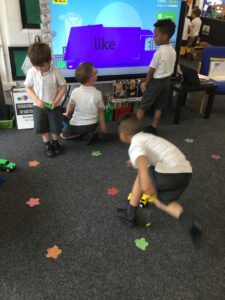
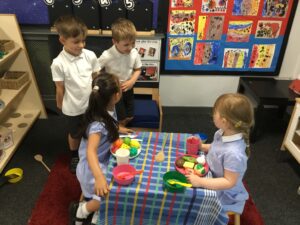 Again, we’ve been super impressed with their amazing writing! They love talking about what they can see and writing sentences about the interesting pictures. For example, this was Thursday’s ‘weird and wonderful’ picture…
Again, we’ve been super impressed with their amazing writing! They love talking about what they can see and writing sentences about the interesting pictures. For example, this was Thursday’s ‘weird and wonderful’ picture…

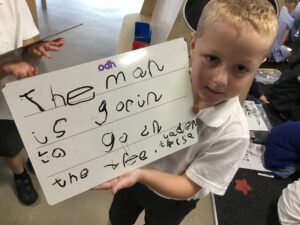
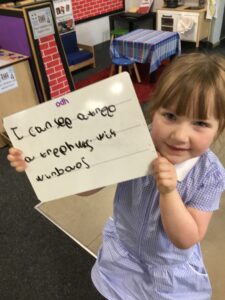

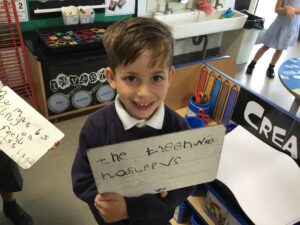
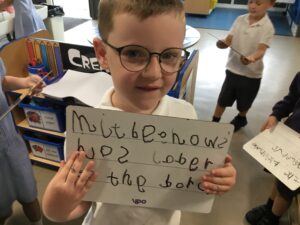
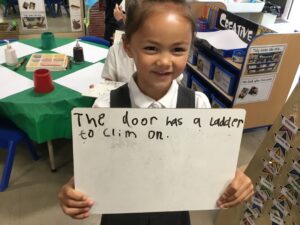
Yesterday, they enjoyed getting to know their new class teachers and exploring in the Year 1 classroom. Mrs Palmer sent me some lovely photos of them having fun in the sun.

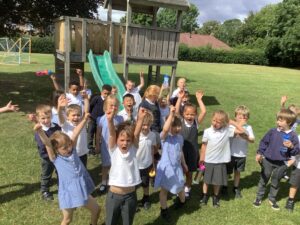
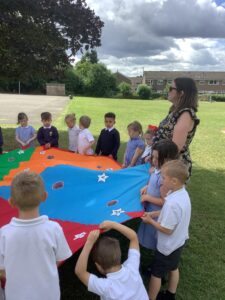 In this week’s Living and Learning session, we talked about keeping safe around medicine and harmful substances. We sorted items that we can and can’t put into our bodies.
In this week’s Living and Learning session, we talked about keeping safe around medicine and harmful substances. We sorted items that we can and can’t put into our bodies.
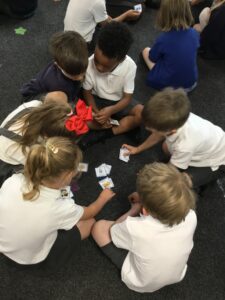
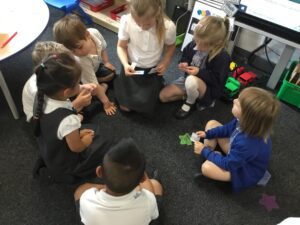
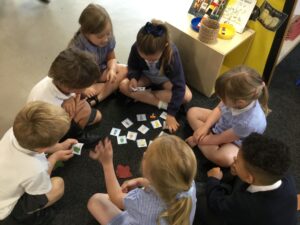
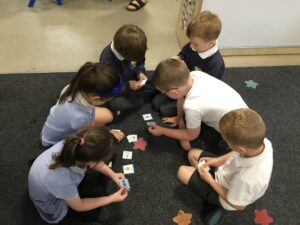
Home-Link Challenge
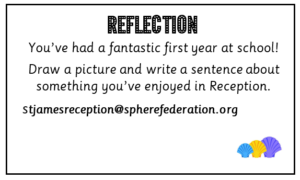
I hope you all have a happy and healthy weekend.
See you next week for your final week in Reception.
15 July 2022
Here are the final spellings of the year!
Please learn the following words:
- photography
- structurally
- teleportation
- calligrapher
- traction
- infectious
- nutritious
- fictitious
15 July 2022
This final Talk Time of the academic year relates to your end-of-year report.
I can talk with adults at home about my report, recognising successes and strengths.
It’s important to remember that your achievements come in many forms. Your key strengths could relate to your learning behaviour, your attainment in a particular subject or your speed of progress.
This is also a great opportunity to apply your understanding of the 8Rs for learning:
- responsive
- ready
- (safe) risks
- responsible
- resourceful
- resilient
- remember
- reflect
Being reflective will be the most prominent of the 8Rs in your conversations as you’ll identify successes recognised by your teacher in the report but also other strengths that you’re aware of. Consider which of the other 8Rs you currently excel at the most. Perhaps you’re a very responsible individual who always demonstrates good learning behaviour. Maybe you’re extremely resilient and have a never-give-up attitude. It could be that you’re very resourceful, using what’s around you to support your learning and not always seeking help right away.
Tropical World
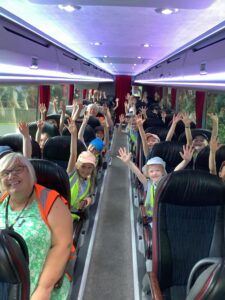
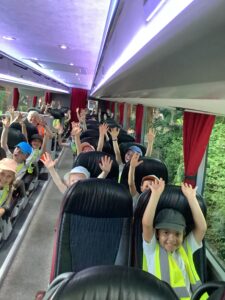
We have had a fantastic day at Tropical World. We saw lot of different animals – butterflies, a crocodile, fish, tarantulas, frogs, bearded dragons, iguanas, meerkats, birds, snakes and lots more.
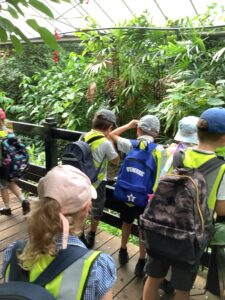
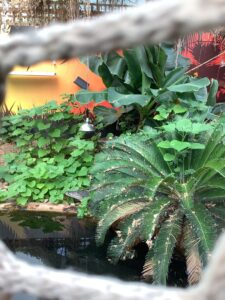
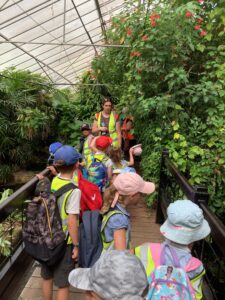
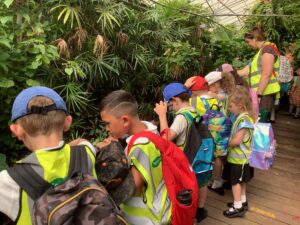

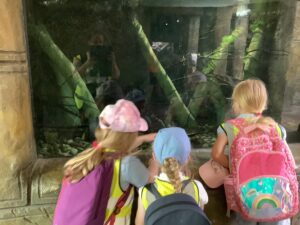
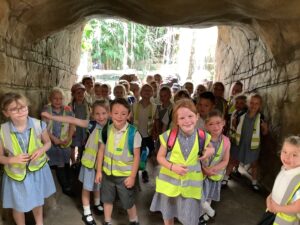
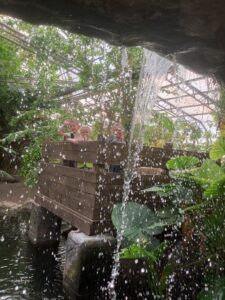
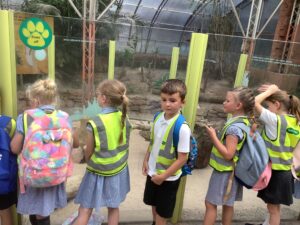
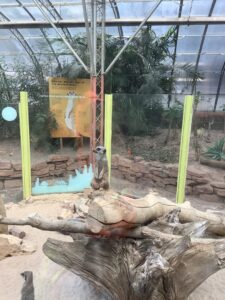
We enjoyed a nice ice-cream in the sunshine and a picnic before we began our afternoon workshop.
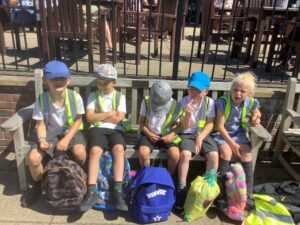
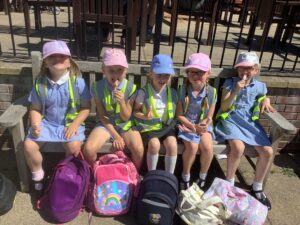
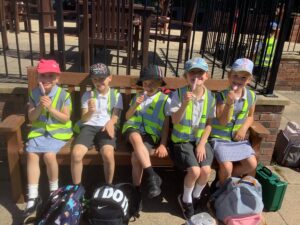
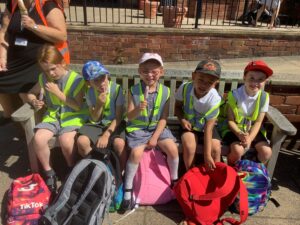
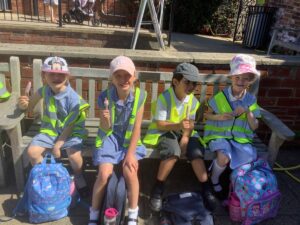
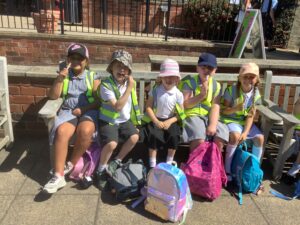
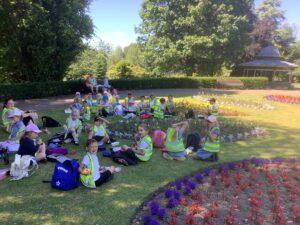
In the workshop we learnt how to measure the height of a tree by laying metre sticks on the ground and how to calculate the age of a tree. We thought of different animals that live in trees too. Spiders, owls, ants, bees, beetles and bats were just some of the animals we thought of.
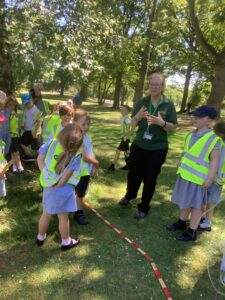
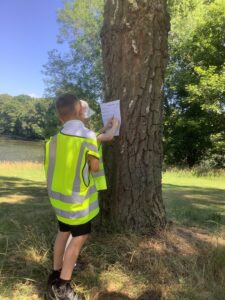
We also learnt how different animals adapt to their habitat. Meerkats have long tails to help them balance and check for prey. They have black rings around their eyes for protection from the sun and 2 eye lids – the second pair of eye lids are see through to stop sand getting in their eyes when they are digging. We also learnt that chameleons have a curly tail to wrap around things like trees and they change colour depending on their mood.
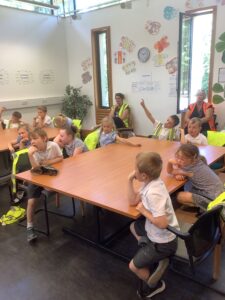
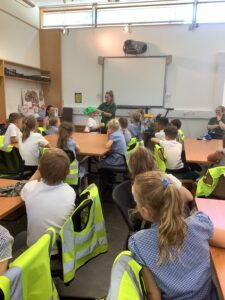
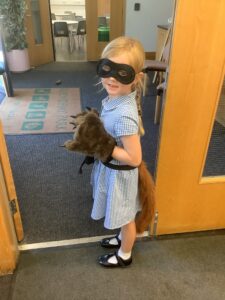
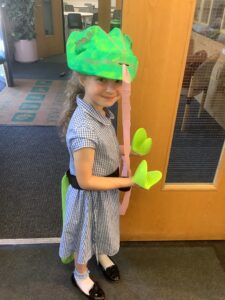
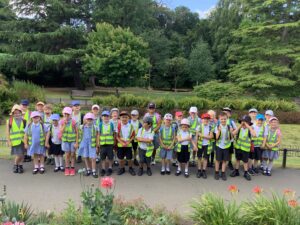
Well done Y12, you were amazing!